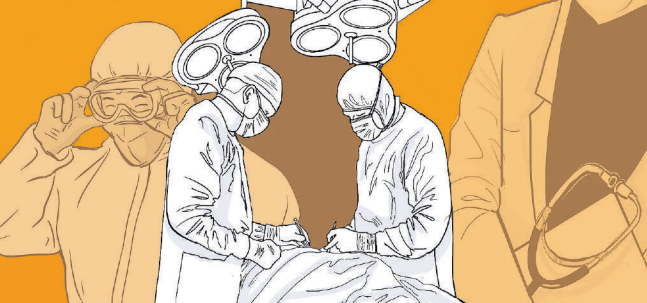

There’s a kind of silence that falls over a room when something goes wrong.
In surgery, it’s often subtle—a pause in the middle of a procedure, a glance between scrubbed hands, a breath held just slightly too long. Outside of the operating room, the silence might take other forms: a meeting that suddenly shifts in tone, a decision that backfires, a team that grows quiet with uncertainty.
Leadership, I’ve come to learn, is defined not by how we perform when everything is going according to plan, but by how we respond when it doesn’t. Leadership can be taught, as it was in my recent experience in the Surgical Leadership Course at Harvard Medical School, but in many cases it has to be learnt through experience.
As a surgeon, I was trained to pursue precision, to minimise complications, to stay calm under pressure. What I was not formally trained for—but had to learn—was how to lead. Over time, I realised that the operating theatre is not just a place of healing; it's a crucible for leadership.
You see, surgery is high-stakes, high-pressure and unforgiving of arrogance. It's a place where decisions carry immediate consequences, where every action is seen and where trust is the real currency. What I have come to understand is that these conditions, while intense, offer deep and transferable lessons about leadership in any field.
One of the first things surgery taught me is that perfection is a dangerous illusion. In leadership, as in surgery, mistakes are inevitable. However, we often treat them as verdicts on our competence rather than opportunities for growth.
I have made mistakes. Clinical, communicative, relational. And while every instinct told me to minimise, hide or explain them away, I eventually learned the far more powerful move: to own them. Leadership is what happens after the mistake. It’s not about being error-free—it’s about being accountable, reflective and adaptable.
Another lesson: no single leadership style works in every situation. In the OR, leading a confident team through a planned procedure is very different from managing chaos in an emergency. Outside surgery, the same truth holds. What motivates one team may not resonate with another. What works in a start-up may fall flat in government. Context is king.
Adaptability is the real skill. The best leaders are those who read the room and flex—not those who cling to scripts.
In surgery, poor communication can be lethal. Ambiguity, silence, or mixed signals create confusion—and in the real world, the stakes are not much lower. Misunderstandings derail projects. Lack of clarity saps morale. Unspoken tension festers.
Leadership demands timely, honest and clear communication. Especially when it’s hard. Especially under pressure. Especially when silence would be more comfortable.
One of the most humbling truths surgery teaches is that skill alone does not make you a leader. Authority means nothing if people do not trust you. Respect is not commanded—it’s earned, over time, through consistency, empathy and transparency.
I have seen surgeons with titles struggle to lead, and junior residents quietly carry a team through a crisis. The distinction? One relied on rank. The other relied on relationship.
The same applies beyond medicine. Leadership is not about being the smartest person in the room. It’s about listening well, holding steady and creating space for others to rise.
Surgery has its own career transitions—from trainee to consultant, clinician to administrator, generalist to subspecialist. Each comes with uncertainty. The truth is, transitions do not guarantee growth—but they offer it. They challenge your identity. They disrupt your rhythm. And they force you to ask: What kind of leader am I becoming now?
Outside surgery, leadership transitions are equally disorienting: starting a company, leaving one, inheriting a team, losing one. The mistake we often make is assuming we have to know exactly what we are doing. But leadership is rarely about certainty. It’s about showing up with presence, curiosity and courage—especially when the path is unclear.
Ultimately, surgery has taught me that leadership is not about control. It’s about clarity under pressure, adaptability in transition and authenticity in complexity.
It’s about walking into the room—whether it's an operating theatre or a boardroom—and bringing the best of yourself, even when you’re unsure.
It’s also about accepting that you will fail. You will misread the moment. You will speak too late or act too soon. But if you are willing to learn, willing to reflect and willing to grow—those failures become fuel.
In surgery, we often say: The only surgeon who doesn’t have complications does not operate. I believe the same is true of leadership: The only leader who never stumbles is one who never truly leads.
So lead. Make the incision. Own the outcome. And when things do not go as planned, lead again.
Okumu is a surgeon, writer and advocate of healthcare reform and leadership in Africa

















